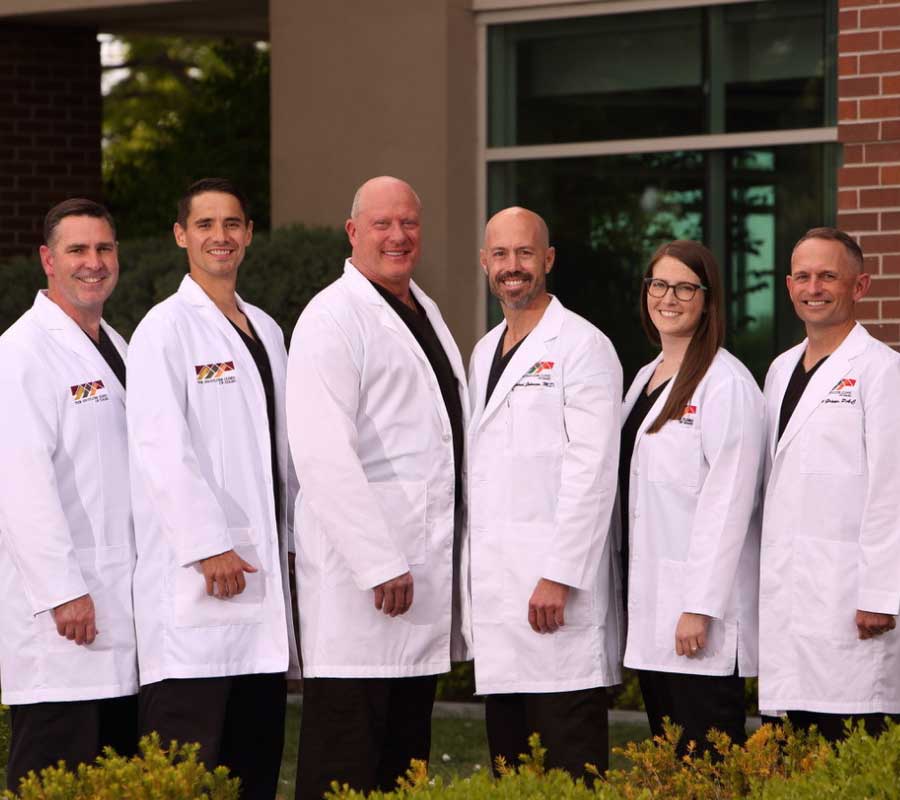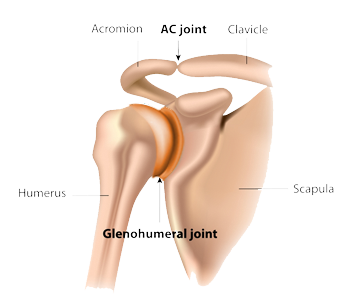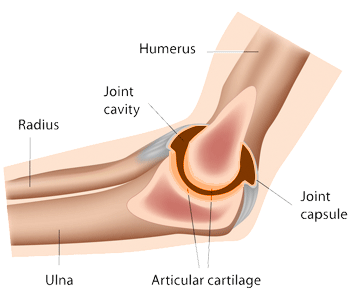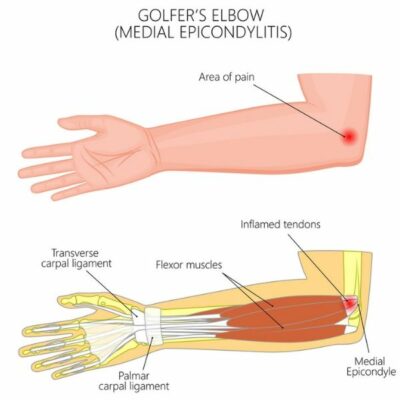Golfer’s Elbow Specialists

Are you experiencing pain or tenderness on the inside of the elbow which worsens with movement? Athletes and golfers can experience stiffness, tingling and weakness in the elbow, wrist and hand area from damage to tendons in the arm. The golfer’s elbow specialists at Shoulder Clinic of Idaho provide diagnosis and both surgical and nonsurgical treatment options for patients in Boise who have symptoms of Golfer’s Elbow. Contact the Shoulder Clinic of Idaho team today!
What is Golfer’s Elbow?
Golfer’s elbow, also called medial epicondylitis, is a condition of the elbow marked by inflammation and irritation of the tendons located on the inside of the elbow. Golfer’s elbow causes pain where the tendons of the forearm muscles attach to the bony bump on the inside of your elbow called the medial epicondyle. Golfer’s elbow is caused by cumulative and repetitive microtrauma induced by the repeated use of the forearm muscles.
Athletes and sports enthusiasts who play golf or other racket sports such as tennis and racquetball are at high risk for developing epicondylitis. The orthopedic specialists at The Shoulder Clinic of Idaho serving Boise, Meridian, Nampa, and the surrounding communities of the Treasure Valley are experienced in treating athletes at all levels with golfer’s elbow symptoms and can get them back to activity and playing the sport they love.
What causes epicondylitis?
Many patients will experience golfer’s elbow symptoms at the beginning of the playing season, with a sudden increase in activity. However, epicondylitis is not only found in golf, it can also occur in patients involved in racquet sports, throwing sports or weight training. People may also have golfer’s elbow from using tools like screwdrivers and hammers, or by raking, or painting.
The overuse of the forearm muscle causes small tears in the tendon which connect the elbow to the wrist. These tears cause swelling of the tendon and pain. Similar to tennis elbow, golfer’s elbow is a form of elbow tendinitis. The difference is that tennis elbow stems from damage to tendons on the outside of the elbow, while golfer’s elbow is caused by inflamed tendons on the inside.
What are the symptoms of golfer’s elbow?
- Stiffness in the elbow, similar to frozen elbow.
- Tenderness and pain on the inside of the elbow. Pain can extend to the inner side of the forearm and can worsen with certain movements.
- Weakness in the hand and wrist, noticed when opening doors or making a fist.
- Numbness or tingling that radiates to one or more fingers – usually the little finger and the ring-finger.
Golfer’s elbow pain may come on suddenly or gradually over time with repeated movements. Pain may become worse with the following activities:
- Flexing the wrist
- Lifting weights
- Turning a door knob, screwdriver or wrench
- Squeezing a ball, or pitching a ball
- Picking up something with the palm facing downward
- Swinging a golf club or racquet
- Shaking hands
How is golfer’s elbow diagnosed?
The orthopedic specialists at The Shoulder Clinic of Idaho will conduct a thorough examination and review of the patient’s medical history. They will ask about daily activities, the onset of golfer’s elbow symptoms and recent injuries. Pressure is usually applied to the affected area and the fingers, wrist and arm are moved in various directions to evaluate for pain and stiffness which reproduces the patients symptoms. If further injury or complications are suspected, an MRI or x-ray may be warranted.
What is the treatment for golfer’s elbow?
Many sports injuries, such as golfer’s elbow, are treated conservatively with rest, ice, compression and elevation (R.I.C.E). This combination of treatments often reduces or eliminates the symptoms and pain from epicondylitis by limiting activity until the injury heals. Some patients benefit from physical therapy to strengthen the muscles and tendons required for each patient’s unique activity or sport.
Will surgery be required for golfer’s elbow?
Golfer’s elbow is usually treated successfully with non-surgical methods. Surgery is rarely required for this type of injury. If the injury is more severe, or if the tendon has torn from the attachment site, surgery may be recommended and is typically done through small minimally invasive incisions.
If you have symptoms of golfer’s elbow, or if you suffer from elbow or forearm pain, please contact the orthopedic elbow specialists at The Shoulder Clinic of Idaho serving patients in Boise, Meridian, Nampa and the surrounding communities of the Treasure Valley.



